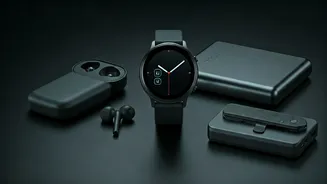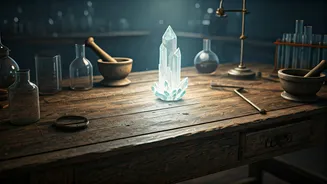Accepting the Pain
Following a breakup, it’s only natural to experience a range of emotions, including sadness, anger, and confusion. It's crucial to acknowledge these feelings
instead of suppressing them. Allow yourself the time needed to grieve the loss of the relationship. This phase is not about dwelling in misery but rather about permitting yourself to process the emotions honestly. Journaling, talking to trusted friends or family, or seeking professional help can be beneficial during this period. Remember that every emotion is valid, and there is no timeline for how long it takes to heal. Be patient and kind to yourself as you work through these emotions. The key here is acceptance. Accepting that the relationship has ended is the first step toward moving forward and initiating the healing process. Understanding that the pain is temporary will eventually empower you to cope with each wave of feeling.
Setting Healthy Boundaries
One of the most essential aspects of healing after a breakup is setting healthy boundaries. These boundaries help protect your emotional well-being and prevent you from getting caught in unhealthy patterns. Boundaries might include limiting contact with your ex-partner, avoiding places or situations that remind you of the relationship, and focusing on your own needs. It is important to communicate your boundaries clearly and assertively, while also respecting your ex's boundaries. This also means being honest with yourself about your own needs and limits. For example, if you find yourself constantly checking your ex's social media, make the conscious decision to stop. This may involve unfollowing, muting, or simply taking a break from social media altogether. Setting boundaries is about prioritizing your mental health and creating space for healing, enabling you to step away from the drama and begin rebuilding your life on your terms.
Embracing Self-Care
Self-care becomes pivotal when you're healing from a breakup. This involves engaging in activities that nurture your physical, emotional, and mental health. This includes eating nutritious meals, getting adequate sleep, and exercising regularly, as they can all significantly impact your mood and energy levels. But self-care goes beyond the physical. It includes participating in activities that bring you joy and help you relax, such as hobbies, reading, spending time in nature, or listening to music. Try new things or revisit old passions that you enjoyed prior to the relationship. Self-care is also about being kind to yourself. This means practicing self-compassion, challenging negative thoughts, and celebrating your achievements, no matter how small. It is also important to remind yourself of your strengths and value, and to avoid self-criticism. Make self-care a non-negotiable part of your routine to promote your overall well-being and accelerate the healing process.
Building Your Support
Leaning on your support network is incredibly important during this time. Surround yourself with friends and family who uplift and encourage you. Share your feelings with them and allow them to offer support. They can provide a sense of connection and remind you that you are not alone. Consider joining support groups or seeking professional counseling to help you process your emotions and develop coping mechanisms. Talking to a therapist can give you tools for navigating the breakup. Additionally, reconnecting with people in your life who you may have drifted away from during the relationship can provide a feeling of connection. Making time for family, friends, or other activities helps combat feelings of loneliness and isolation. Remember, relying on others for support is not a sign of weakness; it is a sign of resilience and self-awareness.
Rediscovering Yourself
A breakup is an opportunity to rediscover who you are outside of the relationship. Take the time to explore your interests and goals, without considering what you may have lost. This can be as simple as trying a new hobby or setting a personal goal. Identify and pursue activities that make you feel fulfilled and happy. This might mean enrolling in a class, traveling to a new place, or simply dedicating time to self-reflection and introspection. Reflect on the lessons learned from the relationship and what you want in future relationships. You might also reconsider your values, beliefs, and aspirations. Consider what makes you unique and what you truly desire in life. This process of self-discovery helps you build confidence and prepares you to embrace new possibilities. Learning to love yourself and becoming the best version of yourself, is the most crucial part of this journey.
Looking Towards the Future
After healing, it's natural to envision a positive future. Start by setting new goals. They provide focus and help you stay motivated. These goals don't have to be massive. Small steps contribute to long-term success. Maintain healthy boundaries and practice self-care daily. Build a strong support network by fostering connections with positive people. Learn from your past, but don't let it define you. Focus on personal growth and self-improvement to build confidence. Visualize the life you want, and believe in your potential. Embrace new opportunities and take risks that excite you. Most importantly, remain open to love but don’t rush things. Be patient with yourself and be prepared for what’s ahead. Trust the process, enjoy the present, and step boldly into your future, creating a fulfilling and meaningful life. Remember, the future is what you make it!











